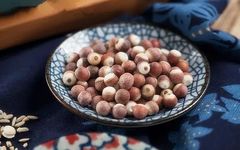Jiang Xianghe, your professional and reliable moxibustion guidance teacher!

When it comes to phlegm-dampness, many people often recall a well-known saying: “The spleen is the source of phlegm, and the lungs are the container for phlegm.”
The generation of phlegm-dampness is closely related to the spleen and lungs. The spleen transforms phlegm-dampness, which then travels upwards to the lungs. The lung qi is affected, unable to disperse and descend, thus the lungs become a container, a reservoir for phlegm. However, phlegm-dampness is not only related to the spleen and lungs but also involves the kidneys.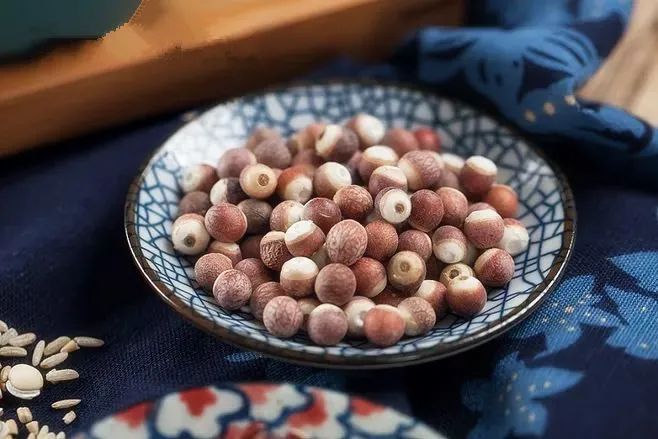 Strangely, what is the relationship between phlegm-dampness and the kidneys? Let’s start with a medical case.During the Republic of China period, there was a woman with severe phlegm-dampness, to the point where she could not eat and would become breathless with slight activity. After three years of herbal treatment without improvement, she finally sought help from the well-known Zhang Xichun.After diagnosing her pulse and observing her severe shortness of breath, Zhang Xichun concluded that this was a clear case of kidney deficiency, where the kidneys could not hold qi. Therefore, he added several kidney-tonifying herbs to the phlegm-resolving formula, and the woman recovered after just a few doses.The kidneys govern storage, preserving some of the body’s most precious essences. However, the kidneys can also falter; sometimes they can hold, and sometimes they cannot.We can imagine the kidneys as a wooden barrel. If the barrel is damaged, the water inside will leak out. Thus, kidney deficiency does not only mean that the kidney essence is consumed too quickly; it can also leak out. Where does it leak to? It leaks into the bladder. Soon, the bladder becomes filled, transitioning from a state of emptiness to fullness.At this point, the fluids in the spleen and stomach cannot be expelled downwards. Originally, these fluids could exit through the bladder, but now they accumulate in the spleen and stomach, gradually forming phlegm-dampness. Therefore, there is another saying in TCM: “The kidneys are the root of phlegm generation.”
Strangely, what is the relationship between phlegm-dampness and the kidneys? Let’s start with a medical case.During the Republic of China period, there was a woman with severe phlegm-dampness, to the point where she could not eat and would become breathless with slight activity. After three years of herbal treatment without improvement, she finally sought help from the well-known Zhang Xichun.After diagnosing her pulse and observing her severe shortness of breath, Zhang Xichun concluded that this was a clear case of kidney deficiency, where the kidneys could not hold qi. Therefore, he added several kidney-tonifying herbs to the phlegm-resolving formula, and the woman recovered after just a few doses.The kidneys govern storage, preserving some of the body’s most precious essences. However, the kidneys can also falter; sometimes they can hold, and sometimes they cannot.We can imagine the kidneys as a wooden barrel. If the barrel is damaged, the water inside will leak out. Thus, kidney deficiency does not only mean that the kidney essence is consumed too quickly; it can also leak out. Where does it leak to? It leaks into the bladder. Soon, the bladder becomes filled, transitioning from a state of emptiness to fullness.At this point, the fluids in the spleen and stomach cannot be expelled downwards. Originally, these fluids could exit through the bladder, but now they accumulate in the spleen and stomach, gradually forming phlegm-dampness. Therefore, there is another saying in TCM: “The kidneys are the root of phlegm generation.”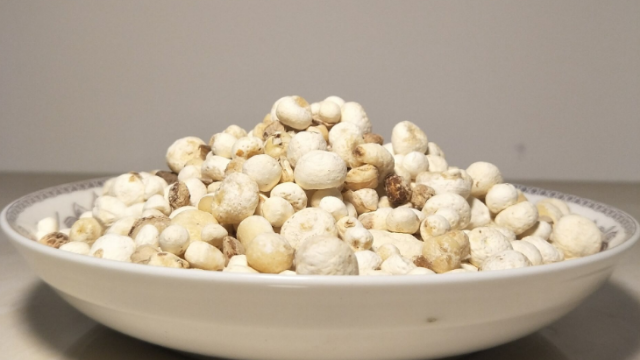 Returning to the case, what formula did Zhang Xichun prescribe? The Phlegm Resolving Decoction.As the name suggests, it helps to regulate and clear phlegm-dampness from the lungs to the spleen, and then to the kidneys, from top to bottom. This intention is quite profound.Phlegm Resolving Decoction:30g Qian Shi (Euryale), 12g Ban Xia (Pinellia), 9g Hei Zhi Ma (Black Sesame, toasted and crushed), 6g Bai Zi Ren (Biota Seed, toasted and crushed), 6g Bai Shao (White Peony), 6g Chen Pi (Dried Tangerine Peel), 6g Fu Ling (Poria), decoct in water for oral administration.Ban Xia, Chen Pi, and Fu Ling, along with a piece of Gan Cao (Licorice), form the classic Er Chen Tang (Two Aged Decoction), which primarily resolves phlegm from the spleen and lungs. The Phlegm Resolving Decoction can be seen as a modified version of Er Chen Tang. In Zhang Xichun’s own words, the Phlegm Resolving Decoction can compensate for the shortcomings of Er Chen Tang. This does not mean that Er Chen Tang is ineffective; it is the foundational formula for phlegm resolution, akin to a solid foundation for a tall building. If the foundation is not well laid, the building cannot stand firm.Zhang Xichun’s Phlegm Resolving Decoction has two main characteristics:First, he placed Qian Shi at the forefront, using a significantly larger amount than Ban Xia, which is traditionally used for phlegm resolution.What is the function of Qian Shi? It not only tonifies kidney essence but also helps to seal leaks. This way, the original essence will not leak out, and the replenished essence can be retained. From another perspective, sufficient kidney qi can also timely transform some phlegm-dampness fluids.Additionally, Qian Shi not only enters the kidneys but also the spleen. The “Compendium of Materia Medica” states it is “a medicine for the spleen and kidneys,” and the “New Compilation of Materia Medica” states it can “tonify the spleen and secure essence.”Historically, Su Shi had a particular fondness for Qian Shi. Not only was he a great writer, but he also paid great attention to health preservation. It is said that he chewed Qian Shi daily, persistently over the years, and even in old age, he remained sharp-minded and creatively prolific.People with diarrhea or frequent urination can consume more Qian Shi; it does not have to be chewed; it can be cooked into porridge or ground into powder. After a period, both innate and acquired essences can be nourished.
Returning to the case, what formula did Zhang Xichun prescribe? The Phlegm Resolving Decoction.As the name suggests, it helps to regulate and clear phlegm-dampness from the lungs to the spleen, and then to the kidneys, from top to bottom. This intention is quite profound.Phlegm Resolving Decoction:30g Qian Shi (Euryale), 12g Ban Xia (Pinellia), 9g Hei Zhi Ma (Black Sesame, toasted and crushed), 6g Bai Zi Ren (Biota Seed, toasted and crushed), 6g Bai Shao (White Peony), 6g Chen Pi (Dried Tangerine Peel), 6g Fu Ling (Poria), decoct in water for oral administration.Ban Xia, Chen Pi, and Fu Ling, along with a piece of Gan Cao (Licorice), form the classic Er Chen Tang (Two Aged Decoction), which primarily resolves phlegm from the spleen and lungs. The Phlegm Resolving Decoction can be seen as a modified version of Er Chen Tang. In Zhang Xichun’s own words, the Phlegm Resolving Decoction can compensate for the shortcomings of Er Chen Tang. This does not mean that Er Chen Tang is ineffective; it is the foundational formula for phlegm resolution, akin to a solid foundation for a tall building. If the foundation is not well laid, the building cannot stand firm.Zhang Xichun’s Phlegm Resolving Decoction has two main characteristics:First, he placed Qian Shi at the forefront, using a significantly larger amount than Ban Xia, which is traditionally used for phlegm resolution.What is the function of Qian Shi? It not only tonifies kidney essence but also helps to seal leaks. This way, the original essence will not leak out, and the replenished essence can be retained. From another perspective, sufficient kidney qi can also timely transform some phlegm-dampness fluids.Additionally, Qian Shi not only enters the kidneys but also the spleen. The “Compendium of Materia Medica” states it is “a medicine for the spleen and kidneys,” and the “New Compilation of Materia Medica” states it can “tonify the spleen and secure essence.”Historically, Su Shi had a particular fondness for Qian Shi. Not only was he a great writer, but he also paid great attention to health preservation. It is said that he chewed Qian Shi daily, persistently over the years, and even in old age, he remained sharp-minded and creatively prolific.People with diarrhea or frequent urination can consume more Qian Shi; it does not have to be chewed; it can be cooked into porridge or ground into powder. After a period, both innate and acquired essences can be nourished.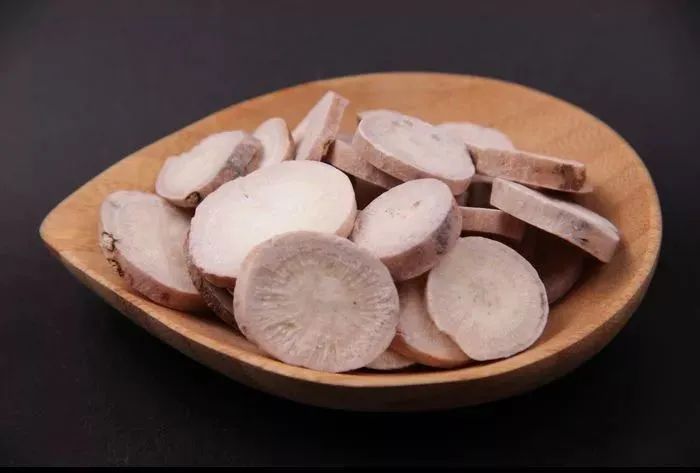 Second, it includes nourishing and moistening ingredients like Hei Zhi Ma (Black Sesame) and Bai Zi Ren (Biota Seed). While Ban Xia is an excellent phlegm-resolving herb, it is warm and drying, which can easily lead to heat.Hei Zhi Ma is the black seed of the sesame plant, and Bai Zi Ren is the seed of the Biota tree. These oily seeds have nourishing properties that can counteract the warming and drying nature of Ban Xia, and they can also moisten the intestines, helping to expel phlegm-dampness through bowel movements. Both Hei Zhi Ma and Bai Zi Ren also tonify the kidneys, assisting Qian Shi in nourishing kidney essence.Bai Shao and Fu Ling can promote urination, guiding phlegm-dampness into the bladder for excretion through urination.Chen Pi’s main role here is to regulate qi. Phlegm-dampness is merely a mass of stagnant filth in the body, akin to a stagnant pool in nature. How does it move? It relies on the qi within the body. Chen Pi can help push the phlegm-dampness downwards.The strategy of the Phlegm Resolving Decoction is as follows: first, use Ban Xia to dissolve phlegm-dampness, then, with the descending action of Chen Pi, guide the phlegm-dampness downwards. Next, use Hei Zhi Ma and Bai Zi Ren to moisten the intestines, while Bai Shao and Fu Ling promote urination, allowing the expelled phlegm-dampness to exit through both bowel movements and urination. Qian Shi can tonify the kidneys, attacking from one side while supplementing from the other, effectively cutting off the source of phlegm-dampness.
Second, it includes nourishing and moistening ingredients like Hei Zhi Ma (Black Sesame) and Bai Zi Ren (Biota Seed). While Ban Xia is an excellent phlegm-resolving herb, it is warm and drying, which can easily lead to heat.Hei Zhi Ma is the black seed of the sesame plant, and Bai Zi Ren is the seed of the Biota tree. These oily seeds have nourishing properties that can counteract the warming and drying nature of Ban Xia, and they can also moisten the intestines, helping to expel phlegm-dampness through bowel movements. Both Hei Zhi Ma and Bai Zi Ren also tonify the kidneys, assisting Qian Shi in nourishing kidney essence.Bai Shao and Fu Ling can promote urination, guiding phlegm-dampness into the bladder for excretion through urination.Chen Pi’s main role here is to regulate qi. Phlegm-dampness is merely a mass of stagnant filth in the body, akin to a stagnant pool in nature. How does it move? It relies on the qi within the body. Chen Pi can help push the phlegm-dampness downwards.The strategy of the Phlegm Resolving Decoction is as follows: first, use Ban Xia to dissolve phlegm-dampness, then, with the descending action of Chen Pi, guide the phlegm-dampness downwards. Next, use Hei Zhi Ma and Bai Zi Ren to moisten the intestines, while Bai Shao and Fu Ling promote urination, allowing the expelled phlegm-dampness to exit through both bowel movements and urination. Qian Shi can tonify the kidneys, attacking from one side while supplementing from the other, effectively cutting off the source of phlegm-dampness.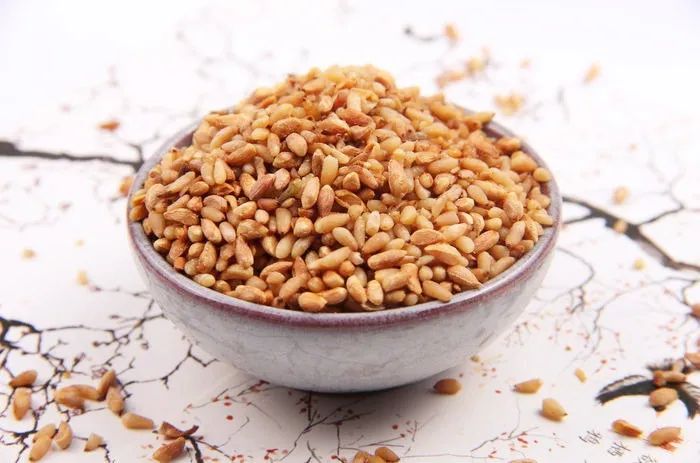 Who is suitable for this formula? Those who frequently have oily skin, do not feel refreshed, often have phlegm in the throat that cannot be cleared, and also exhibit symptoms of kidney qi deficiency, such as weak lower back and knees, sensitivity to cold, fatigue, and dry mouth but not wanting to drink water, can take this Phlegm Resolving Decoction decocted in water for oral administration.Finally, I wish everyone good health and to be free from the troubles of phlegm-dampness.Let’sgive a thumbs up for health!!
Who is suitable for this formula? Those who frequently have oily skin, do not feel refreshed, often have phlegm in the throat that cannot be cleared, and also exhibit symptoms of kidney qi deficiency, such as weak lower back and knees, sensitivity to cold, fatigue, and dry mouth but not wanting to drink water, can take this Phlegm Resolving Decoction decocted in water for oral administration.Finally, I wish everyone good health and to be free from the troubles of phlegm-dampness.Let’sgive a thumbs up for health!!

